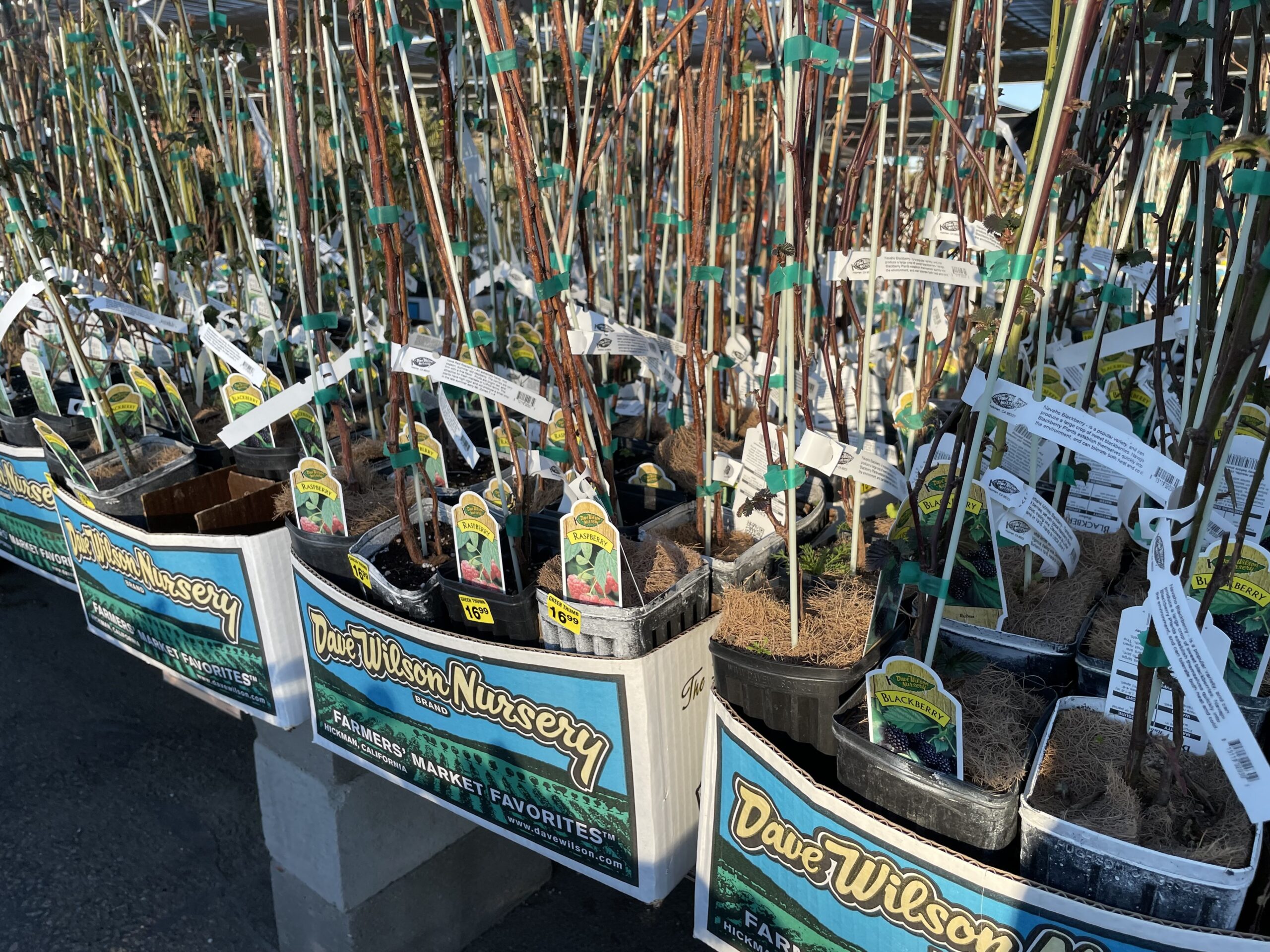Do your summertime dreams include picking juicy plums off a tree in your own backyard? Or harvesting tart, crisp apples in the fall? What about small, sweet blueberries in spring or warm, honey-filled figs in late summer? These are just a few of the fruits that you can purchase and plant as “bare roots” in nurseries this time of year.
What is a bare root plant? It is a young, deciduous tree, shrub, woody vine or perennial, that is grown in the ground, dug up while dormant (without leaves), and cleaned of all the dirt on its roots.
 Once the roots are clean, they are carefully packaged to keep them moist, then shipped to nurseries across the country. Bare root trees travel well and, because they are dormant, transplant easily.
Once the roots are clean, they are carefully packaged to keep them moist, then shipped to nurseries across the country. Bare root trees travel well and, because they are dormant, transplant easily.
January is the perfect time for buying and planting bare root trees across California. The days are clear and cool, nights are cold and, unless you live at high elevations, the ground isn’t frozen.
Visit any independent nursery in January and you’ll be amazed to see just how many kinds of fruit trees are offered bare root. In addition to plums, you’ll find other traditional stone fruits like peaches, nectarines, apricots, and cherries. Then, there are the yummy intergeneric crosses: Aprium, Plumcot, and Pluot, which are all apricot/plum hybrids that produce like crazy.
 Apples, pears, Asian pears and quince are all sold bare root, as are pomegranate, persimmons, figs, and the exotic jujube. You can even buy bare root almonds, walnuts, and pecans.
Apples, pears, Asian pears and quince are all sold bare root, as are pomegranate, persimmons, figs, and the exotic jujube. You can even buy bare root almonds, walnuts, and pecans.
Table grapes, wine grapes, kiwi vines, artichokes, rhubarb, and strawberries are usually available bare root as well.
Bare root trees are not pretty. Their bare stems tend to look like sticks with a straggly web of roots attached at the bottom. They may be homely but bare roots are the most affordable option and you have the widest number of varieties to choose from.
Ready to learn more about growing fruit trees? Join my upcoming webinar, Fruit Trees for SoCal Gardens, at 7 PM on Thursday, December 19th. I’ll teach you everything you know to select, plant, and properly care for fruit trees in your Southern California garden.
Scheduling conflict? This webinar will be recorded and sent to all ticket holders!





